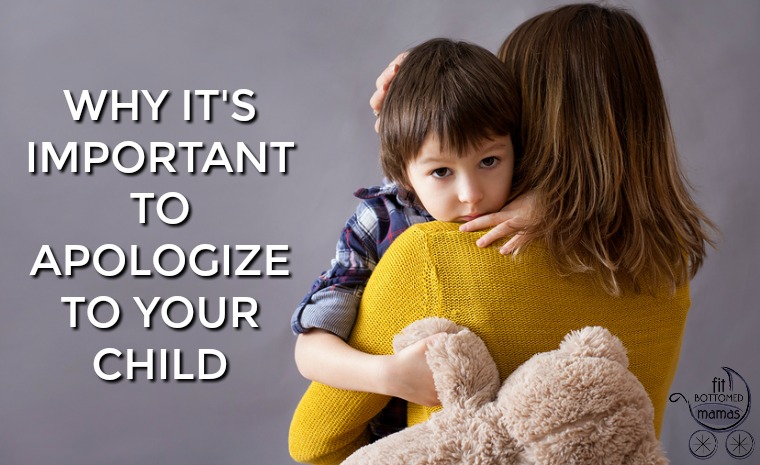Why It’s Important to Apologize to Your Child
I’m big on accountability. I can’t say that I’ve always been, but it recently became very important to me. I noticed the emphasis on this personal characteristic since having to start disciplining my son. Like I’ve mentioned before, he’s of preschool age and with that comes a newly developed understanding of right and wrong. Of course, it doesn’t automatically mean that once a child turns four they will better understand the difference like an adult does. I’m cognizant that it happens at different ages.
In attempting to be in sync with my son’s development — it’s hard to be ahead of it — I have found myself adjusting my discipline level according to his growth. (I should say we have because a lot of this parenting labor wouldn’t be as successful as it is without my husband’s support and reinforcement. Part of the credit goes to him.) In my case, I’ve noticed that I’ve had to adjust my lifestyle based on what kind of reactions and behaviors my son is reflecting back to me. In the short time of being a mother, I’ve confirmed that my children are great little mirrors for my own attitude. Understanding this has opened a new parenting portal for me. Let me explain.

It can be overwhelming to thinking of all the positive traits I want to teach my children, so I try and focus on one at a time. (In this post, I’m focusing on accountability.) Where or how do I start? I’ve learned the easiest way for me to teach my children is to model the behavior for them. An example of what this could look like — remember to adjust and apply according to your family’s needs — is apologizing to my children. Yes, this means apologizing to my one-year-old daughter, too.
Let me be clear on what I apologize for. The two things I often apologize for is overreacting and losing my temper. (Gasp! Yes, I lose my temper. I am human, too. I don’t have it together all the time. Who’s with me?) I get snapped out of my grouchiness when my four-year-old tells me, “Mom, just relax. You have to remember to breathe.” Talk about feeling like an immature adult throwing a tantrum!
My intention in apologizing to my son is for him to see it as normal to take accountability for his emotions and actions. My intention in apologizing to my one-year-old daughter is for my son to see me apologize to someone other than him; I want him to witness an apology as a bystander instead of a participant in the situation. It’s proven positive so far as I’ve heard him apologize to other people in addition to me. Ultimately, I want my son to have the confidence to establish a communicative relationship with anyone he meets, not only family.
It is important for me to apologize to my children; however, that doesn’t mean that I believe I will always need to. What I do not apologize for are the moments where my son feels the need to interrupt because he insists his wants are more important. (Notice that I used “wants” and not “needs”.) For example, I do not apologize to my son if he’s attempting to interrupt an important conversation I am having simply because he wants to watch television. When this happens, I pause my conversation, come down to his eye level, and let him know that he needs to be patient. No apologizing about how I am not listening to him needed. After my conversation, I then explain to him why I did not acknowledge his requests at the moment he was asking and thank him for being patient.
Children are little sponges. They are capable of picking up on positive behaviors as fast as negative ones. I know it’s easier said than done, but sincerely I believe that all it takes is constant reinforcement, which means that as parents — the people that greatly influence children — have to model it genuinely and always.
Do you have any other ideas of ways to teach our children accountability? —Jasmin
